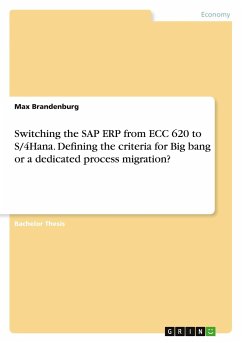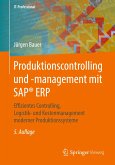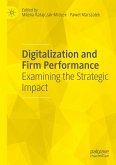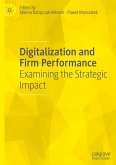Bachelor Thesis from the year 2020 in the subject Business economics - Business Management, Corporate Governance, grade: 1,0, International School of Management, Hamburg Campus (ISM), language: English, abstract: SAP offers multiple ERP-systems in its product portfolio, which they have announced to change within the next ten years. Hence, any business currently applying SAP ERP products will need to migrate from ECC 620 to S/4Hana after 2030, to maintain its operating business. That migration is as complicated as it is complex, which means that companies are dependent on third-party consultations for its completion.There are two main possibilities of how to implement such project. Through a big bang or a dedicated process migration. But what are the criteria for the different scenarios? Which factors determine the approach of the project? And more importantly, which business aspects should be prioritized to guarantee a successful implementation?Max Brandenburg examines three approaches for a S/4Hana transition i.e. brownfield, greenfield, and landscape transformation. The author explains the concept of decision-making and change management, before evaluating and critically assessing a variety of implementation strategies. His findings are concluded in the Brandenburg Migration Check, which depicts company specific requirements, systematical requirements as well as motives and aims for the digital transformation to S/4Hana. Each factor and its strategic implications are defined. The findings are based on the experiences of different in-house as well as external consultants and are applicable to any kind of ERP change project.
Hinweis: Dieser Artikel kann nur an eine deutsche Lieferadresse ausgeliefert werden.
Hinweis: Dieser Artikel kann nur an eine deutsche Lieferadresse ausgeliefert werden.








